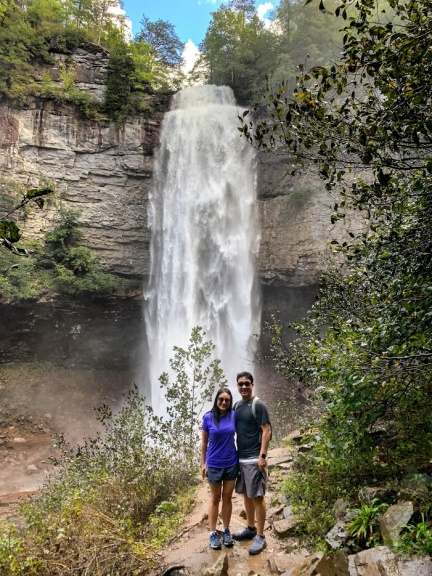Spotlight on Vanderbilt Biostatistics: Ahra Kim
This week's Spotlight features one of our newer staff biostatisticians, Ahra Kim. Learn how this Southern California native ventured East to Nashville for a great opportunity in research and is now learning to brave the winters, all while providing statistical support to her collaborators here at Vanderbilt.
Tell us about the research you are involved in.
I am involved with three collaborations here at Vanderbilt. Half of my time is spent working on projects with the Caribbean, Central and South America network (CCASAnet) for HIV epidemiology. It consists of HIV clinical sites from seven countries in Latin America, and is also a member of a larger consortium, International Epidemiologic Databases to Evaluate AIDS (IeDEA). In one study, we are comparing outcomes such as mortality, retention in care, and timing of antiretroviral therapy initiation in HIV infected adults with and without tuberculosis. We have recently submitted several abstracts to a conference and are currently working on additional analyses for manuscripts.
My two other collaborations are with the Department of Psychiatry and Center for Biomedical Ethics. For one project in Psychiatry, we are interested in assessing how catatonia and delirium affect survival in critically-ill patients. For Biomedical Ethics, we have been trying to better understand characteristics of patients needing ethical consults for controversial topics like organ donation or treatment decision making, as well as practice patterns of clinicians when it comes to these issues. I am grateful to be working on such a wide range of interesting projects.
What was your draw to statistics and/or Vanderbilt?
I was drawn to statistics in a non-traditional way since I have a social science background. I enjoyed doing research, but many of my classes as an undergraduate involved secondary research and I wanted to do something more hands-on. I was fascinated when I took a course in biostatistics, which was my first exposure to learning R programming. This encouraged me to pursue a master’s degree in biostatistics. Joining the Department at Vanderbilt was an amazing opportunity for me as a new graduate, so I relocated from California.
What lessons have you learned from being a biostatistician?
Though I haven’t been a biostatistician for very long now, I’ve learned that being organized and transparent is key. Sometimes projects pause and resume months or even years later, so it’s helpful to clearly document everything and practice reproducibility to avoid confusion and save time in the long run.
What makes Vanderbilt special in your experiences of collaborating with others?
The collaboration opportunities here have been wonderful. Everybody has been very kind and respectful, and view statisticians as valuable team members. I also appreciate the diverse resources and how there are so many experts in various fields that you can learn from, especially if you encounter a difficult problem in an area you may not be familiar with.
Tell us about your life outside of Vanderbilt. Do you have a significant other? What about your hobbies?
I have been engaged to my fiancé for almost a year now and will be getting married next spring. We both moved here from California. Outside of work, I enjoy a variety of hobbies including hiking, playing tennis, and practicing yoga. I also like to see live music performances, visit cool galleries or exhibits, and occasionally attend sporting events.
Finally, what is something about you that most people at Vanderbilt still don't know about you?
Prior to moving to Nashville, I lived in an inland region of Southern California (Inland Empire) where summer temperatures can reach highs of 116 degrees Fahrenheit. Winters are usually mild with highs in the 60s. Coming to Nashville, I was shocked to see temperatures drop to single digits last winter. Though I’ve been here for a year and half now, I still haven’t acclimated fully to the cold!
